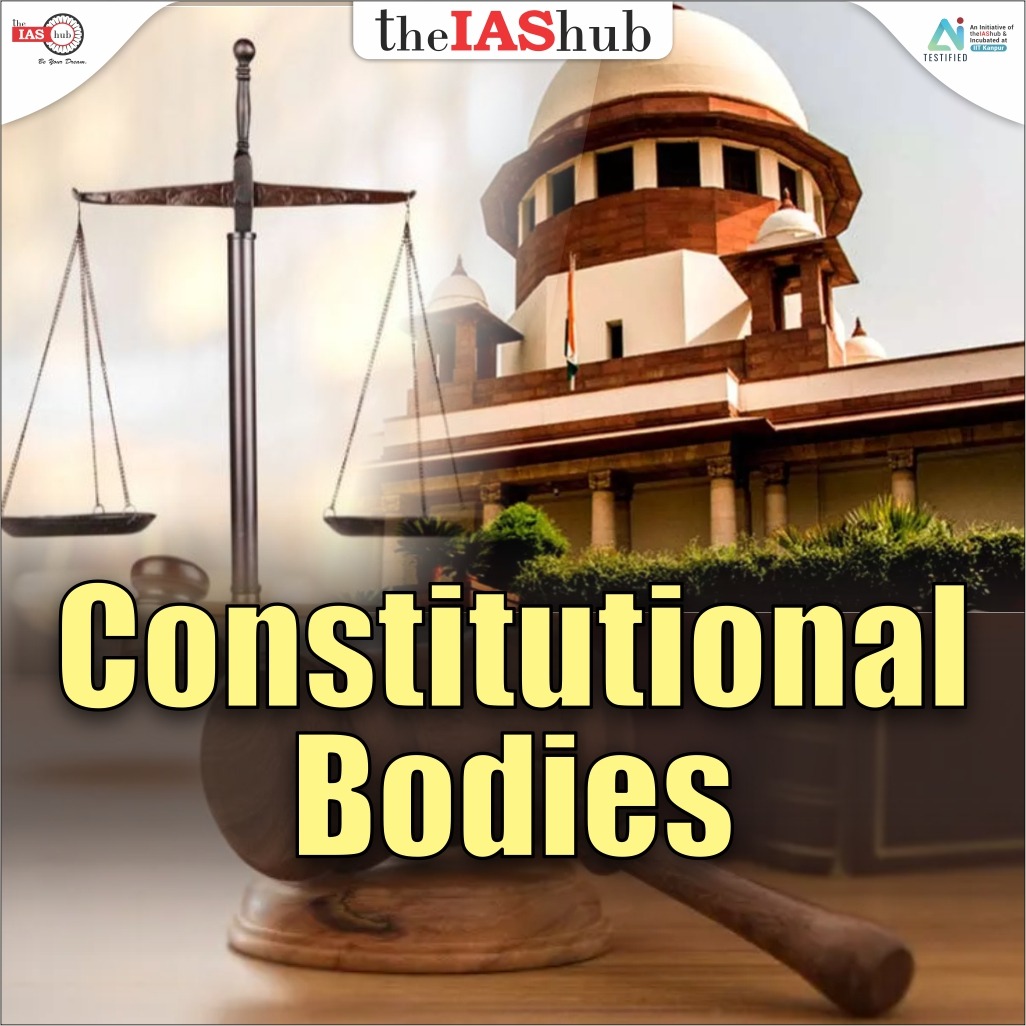Article 280 of the Constitution established the Finance Commission to manage the distribution of tax revenues between the union and states, as well as among states, in order to address vertical and horizontal imbalances.


Finance Commission (Article 280):
Introduction
Functions:
|
Role of Finance Commission |
Example |
|
|
|
|
|
|
|
|
|
|
|
|
|
|
|
|
Composition:
Membership qualifications as per the constitution:
Significance
Key Recommendation of the 14th Finance Commission:
Key Recommendations of the 15th Finance Commission:
Criticism of the 15th Finance Commission:
Comparative analysis of the 14th and 15th Finance Commission with reference to Municipal Governance:
|
Parameters |
14th Finance Commission |
15th Finance Commission |
|
Increment of funds to cities |
Local governments received 4.31 percent of the distributable pool from the 14th FC, of which 30% were given to municipalities. |
Local governments received 4.15 percent of the divisible pool from the 15th FC, of which 40% were given to municipalities. |
|
Metropolitan Governance |
About 20% of the 14th FC's allotments were designated as performance grants. These funds were contingent upon increased income, audited financial statements, and the publication of service-level standards. |
The 15th FC has rewarded the metropolitan government by tying 100% of financing to results. |
|
Transparency in Municipal finances |
It maintained much-needed policy consistency but did not always result in better data or more openness. The 14th FC had made the disclosure of service level benchmarks a requirement for performance grants. |
The 15th FC has also stressed the necessity of digitizing municipal accounting and of having a comprehensive understanding of the finances of the municipal sector at the state and union levels. |
Conclusion
The Finance Commission has performed a valuable purpose and met a big demand as an independent entity. It served as a specialist in cooperative energy for the efficient operation of a federal system in a difficult and complicated country like India.


Refine your answer writing skills and elevate your UPSC preparation with personalized support and expert feedback.
Fill out the form to get started with the program or any other enquiries !








Are you dreaming of becoming an IAS officer? Then, IAShub can be your best guide. It is one of the Best IAS Coaching in Delhi. Many students who want to clear the UPSC exam join IAShub for learning. The institute gives both online and offline classes. Their teachers are experienced and helpful. They easily explain every topic. Students also get notes, tests, and tips to do well in the exam.
IAShub is in Delhi and is trusted by many UPSC students. It offers coaching for every part of the UPSC exam – Prelims, Mains, and Interview. The classes are simple and easy to understand. The teachers are experts and guide students in the right way. IAShub is also known for its helpful notes, test series, and answer-writing practice. IAShub is the best coaching in Delhi and also gives UPSC Online Classes. This helps students from any place in India to learn. The online classes are live and also recorded. So, students can watch them anytime. These classes cover the full UPSC syllabus.
Here are some important services provided by IAShub:
The UPSC Civil Services Exam has three parts:
This exam is tough, but with the right guidance, it becomes easy to manage. Students must study smart and stay regular.
IAShub supports students from the beginning to the end. It gives the right books, tests, and notes. The classes are easy to follow, and the teachers are always ready to help. Students get personal doubt sessions too. The test series and answer checking help students learn where they need to do better. Also, free study materials save time and money.
IAShub also guides students during the final stage – the interview. Experts take mock interviews and give useful tips. This full support makes IAShub one of the best IAS coaching in Delhi.